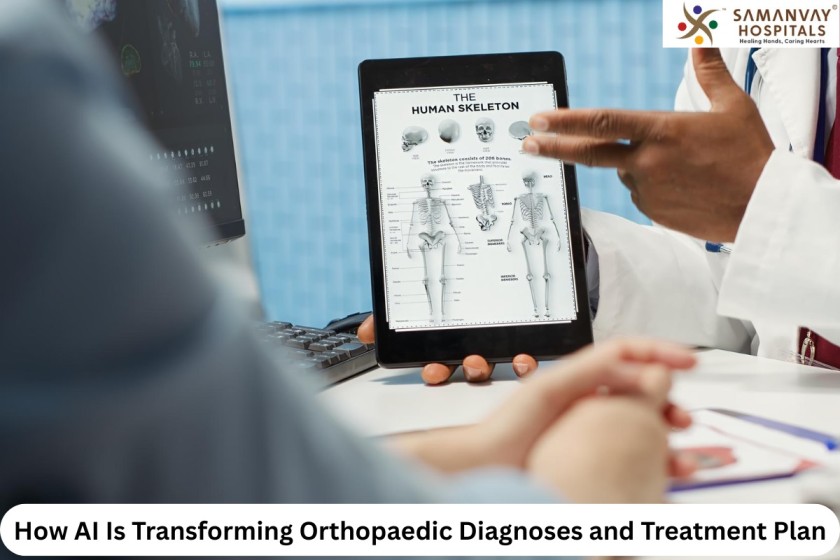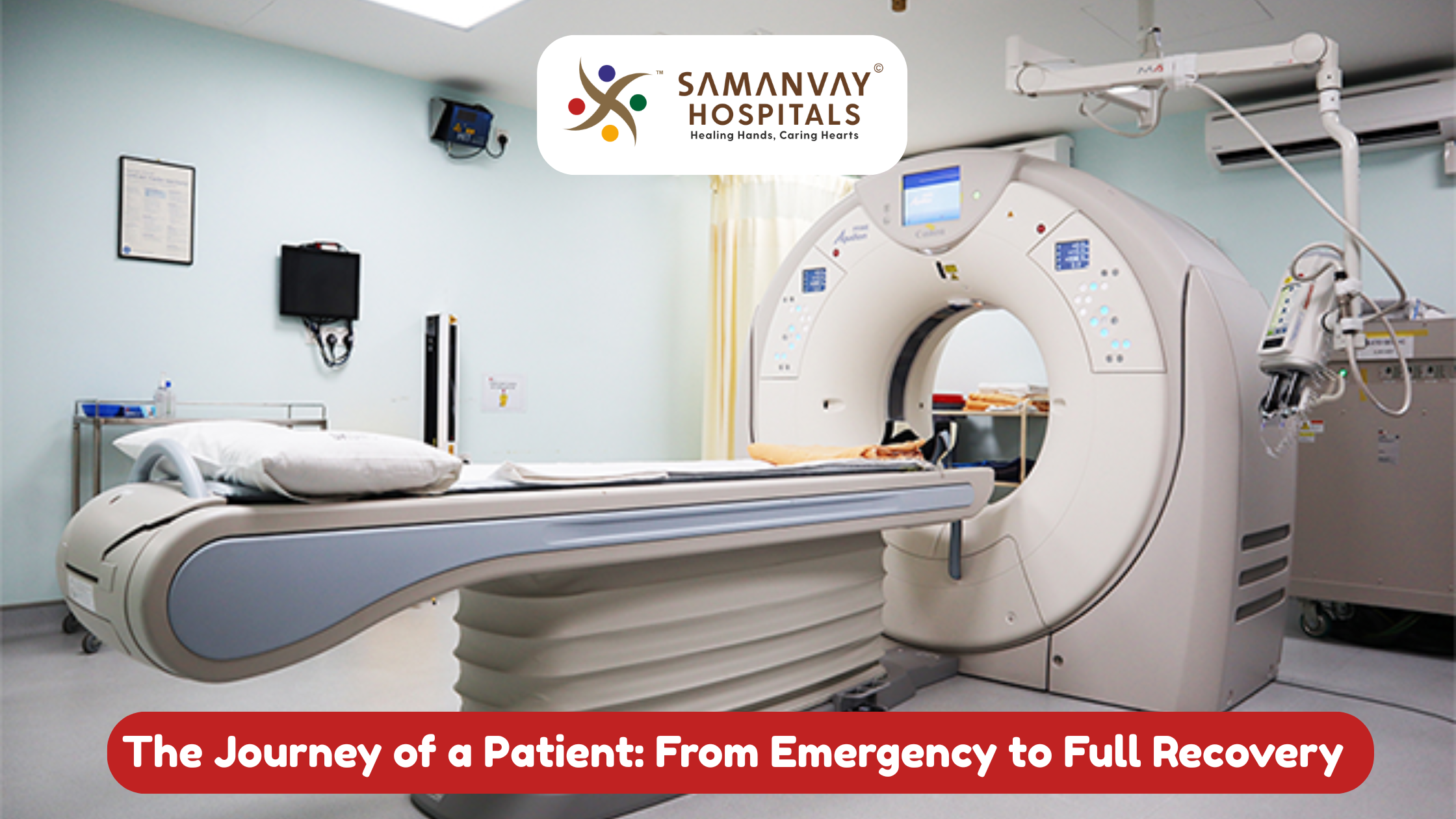
Table of Contents
- Introduction
- What is Artificial Intelligence in orthopaedics?
- AI in orthopaedic diagnoses
- AI in creating precise treatment plans
- Benefits of AI in orthopaedic care
- Challenges and limitations
- The future of AI in orthopaedics
- Conclusion
- FAQs
Introduction
Orthopaedics deals with bones, joints, muscles, and ligaments. It is hard and time-consuming to identify problems in this area. Artificial Intelligence (AI) is transforming medical practice, though. AI identifies problems quicker and enables better treatment planning. AI analyzes medical images, history, and patterns for medical professionals. Diagnosis becomes more precise and less stressful for patients due to this.
Most of the leading orthopedic hospitals in Vadodara are employing AI tools in the present times. Furthermore, individuals going to the best hospitals in Baroda are receiving smarter and faster treatment. With AI, both physicians and patients benefit with improved outcomes. This article discusses how AI is creating a huge impact in orthopedic treatment.
What is Artificial Intelligence in Orthopaedic Diagnoses?
Artificial Intelligence, or AI, refers to machines learning and behaving like human beings. It uses data, patterns, and intelligent programs to resolve issues. In orthopaedics, AI assists physicians in examining medical images and patient histories. This assistance makes their choices accurate and quicker. AI is able to identify minute indications of disease that humans might overlook.
Additionally, it also minimizes errors and conserves time. AI tools range from basic computer software to sophisticated machines that aid during operations. These tools are now utilized by most experts, including knee specialist in Vadodara. With AI, physicians are able to provide improved care and enhanced treatment protocols. It is transforming the manner in which orthopedic care functions today.
AI in Orthopaedic Diagnoses
Diagnosing joint and bone issues requires meticulous scrutiny. Historically, physicians use X-rays, MRIs, and physical examinations. Now, AI improves analyzing these scans. It identifies fractures, arthritis, and other illnesses at an early stage. AI applies deep learning to compare hundreds of images rapidly. This results in faster and correct diagnoses. For instance:
- AI shows fractures not visible to the human eye.
- It quantifies joint space to identify arthritis severity.
- AI foresees bone disease threats prior to the onset of symptoms.
Thanks to AI, knee experts in Vadodara are able to provide early treatment. Furthermore, AI minimizes possibilities of misdiagnosis. Faster and more accurate diagnosis benefits patients.
AI in creating precise treatment plans
Once diagnosed, creating the right treatment plan is critical. AI supports personalized care by considering many factors. It uses patient data, injury type, and recovery history to suggest options. Doctors combine AI recommendations with their expertise. This approach improves success rates. Furthermore, AI helps in surgical planning by:
- Mapping the exact area for surgery.
- Predicting surgical outcomes.
- Minimizing risks during operations.
Moreover, there are some of the top orthopedic hospital in Vadodara that use robotic surgery assisted by AI. This enhances accuracy and minimizes recovery time. The best Baroda hospitals increasingly make use of such AI-based techniques for improving patient care.
Benefits of AI in Orthopaedic Diagnoses
Artificial intelligence provides numerous benefits in orthopaedics:
- Enhanced accuracy: AI identifies minor changes in images.
- Rapid diagnoses: AI handles bulk data rapidly.
- Customized treatment: AI personalizes plans for every patient.
- Improved surgical outcomes: AI aids in minimally invasive procedures.
- Less expense: Effective diagnosis and treatment limit hospital stays.
- Ongoing learning: AI programs become better with more information.
All of these advantages guarantee patients high-quality treatment. However, specialists dealing with knees in Vadodara employ AI technology to track recovery remotely. This enables patients to access follow-ups without repeated hospital visits.
Challenges and limitations
Although AI has many benefits, it is not without some limitations.
The AI system requires a good amount of high-quality data to operate the system efficiently. When the data is incomplete or wrong, AI can give flawed results.
Furthermore, there is also a concern of privacy in patient data. Hospitals will need to ensure that all personal health information is protected and not used for exploitation.
Third, not every hospital can tolerate or support AI devices. Advanced systems can be expensive, and some hospitals may lack proper infrastructure.
Fourth, doctors need to be well trained to get the best from AI. They may not be able to take advantage of the full capacity of these devices.
Fifth, AI may not be able to identify unusual or unknown medical conditions. This is mainly operated on the basis of the first seen pattern.
Therefore, AI needs to support doctors, not replace them. When human knowledge is associated with AI technology, patients are provided with the best care. Working together with doctors and AI causes intelligent and safe treatment.
The future of AI in orthopaedics
AI in orthopaedics will continue to advance. Trends of the future are:
- More advanced robotic procedures with real-time feedback from AI.
- Wearable devices equipped with AI that monitor bone health.
- Predictive analytics to prevent injuries.
- Virtual reality for educating and rehabilitating patients.
- AI adoption with telemedicine for distant care.
Moreover, patients who go to the top hospitals in Baroda and leading orthopedic hospitals in Vadodara will greatly benefit. Knee experts in Vadodara will have additional weapons to cure complicated cases. This technology guarantees improved outcomes and quicker recovery.
Conclusion
Artificial intelligence is revolutionizing doctors’ approach to curing bone and joint issues. It assists them in identifying the correct diagnosis promptly and arranging improved treatments. Doctors can now view things that are difficult to observe with the naked eye through AI. This brings fewer errors and customized treatment for every patient. AI also decreases the waiting time before treatment can begin. Despite some challenges, the future of orthopedic AI is very bright.
Furthermore, most hospitals now use this intelligent technology to deliver better care to their patients. Individuals who go to the top hospitals in Baroda and other cities already notice the difference. If you need correct and efficient treatment, go for a hospital that employs AI devices. Therefore, this new method is already bringing a substantial change for patients globally. AI is actually assisting doctors to deliver quicker, secure, and better care.
FAQs
AI processes medical images quicker and identifies fine problems.
No, AI supports doctors but cannot substitute their skills.
Yes, most top hospitals now implement AI for enhanced care.
Yes, AI facilitates accurate surgical planning, reducing risks.
Hospitals adhere to rigorous privacy guidelines to ensure patient information.






